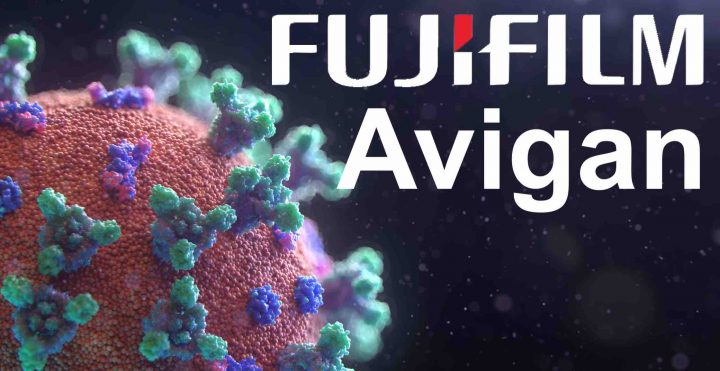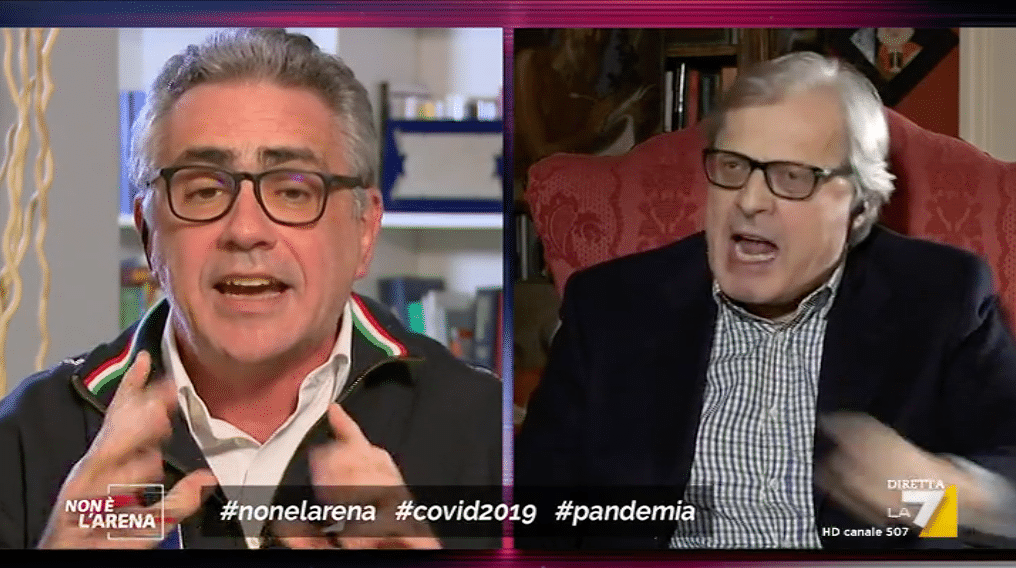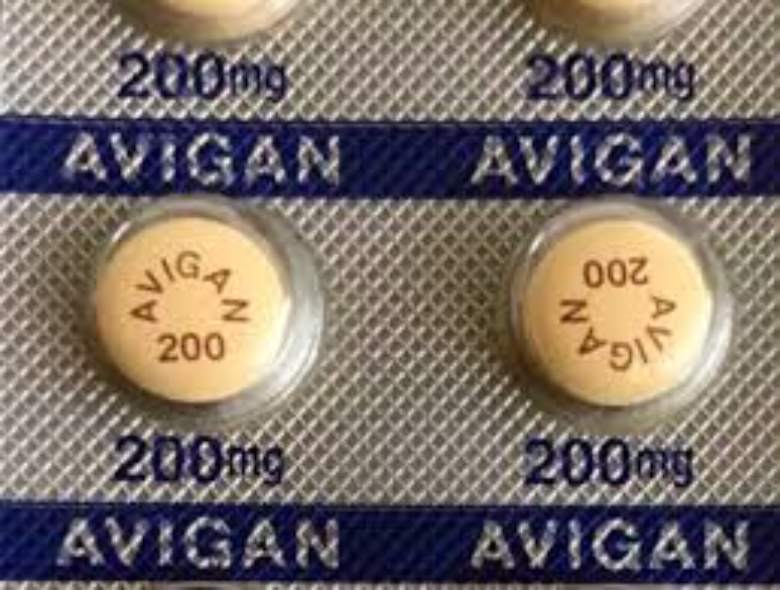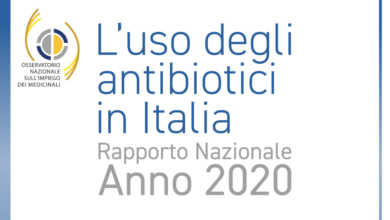
What's true about Avigan against the coronavirus
The effectiveness of the antiviral - which was much discussed after a video on social media - is still being studied and tested, as explained by the Italian Medicines Agency
Over the weekend, a video of a pharmacist from Lazio who spoke enthusiastically about Avigan (favipiravir), an antiviral drug available in Japan that would have given positive results in a  experimentation on patients with coronavirus. The video was later taken up by numerous newspapers and some television broadcasts, and there was no lack of controversy against the institutions that authorize the drugs, with accusations of not having dealt with the issue. In reality, Avigan has been tested on a small number of patients with still uncertain scientific results, and it is not a medicine kept secret: it has been known for some time by the Italian Medicines Agency (AIFA), the authority which has the task of supervising the safety of medicinal products and to authorize their use in Italy.
experimentation on patients with coronavirus. The video was later taken up by numerous newspapers and some television broadcasts, and there was no lack of controversy against the institutions that authorize the drugs, with accusations of not having dealt with the issue. In reality, Avigan has been tested on a small number of patients with still uncertain scientific results, and it is not a medicine kept secret: it has been known for some time by the Italian Medicines Agency (AIFA), the authority which has the task of supervising the safety of medicinal products and to authorize their use in Italy.
The video from Japan
Cristiano Aresu is 41 years old, works as a pharmacist and often visits Japan. On the afternoon of Saturday 21 March, Aresu posted a video about three minutes, in which he shows a Tokyo square claiming that the population has returned to lead a normal life, also thanks to the use of Avigan to treat patients with COVID-19, the disease caused by the coronavirus. In the video he says that the drug "brought Japan back to life" and made it "breathe again", adding that the Italians should "loudly" ask the government to have Avigan to recover as the Japanese did.
Sunday, March 22, the paper edition of Corriere della Sera spoke of Aresu in a short article entitled "The experience from Tokyo: the flu shot for mild cases", with a long series of quotation marks in which the pharmacist maintained that the administration of Avigan "blocks the progression of the disease in 91 percent of the time". Some caution was expressed at the end of the article, which also mentioned the "positive effects" found "by Chinese scientists", without providing further details.
What is Avigan
Avigan is the trade name of favipiravir, an antiviral drug developed by the pharmaceutical company Toyama Chemical (of the Japanese group Fujifilm) active against some types of RNA viruses. It was designed with  the objective of blocking the mechanisms used by viruses to replicate in the body, in order to help the immune system get rid of them, more quickly and with fewer consequences for health.
the objective of blocking the mechanisms used by viruses to replicate in the body, in order to help the immune system get rid of them, more quickly and with fewer consequences for health.
The drug was approved by the Japanese supervisory authorities in 2014, foreseeing its possible use in the case of influenza pandemics, therefore caused by viruses other than the coronavirus. To date, however, there are still doubts about the effectiveness of Avigan, especially in its ability to protect the cells that make up the tissues of the upper airways, where flu viruses usually do more damage.
Unlike what Aresu claims, to date the use of Avigan in Japan is permitted only in particular emergency conditions, when other antivirals prove ineffective. Initially Toyama Chemical hoped that the approval by the authorities could include more cases, making Avigan a substitute for Tamiflu, a drug that has been on the market for some time and which gives positive results in the treatment of some flu syndromes. Currently, the use of Avigan has been permitted in Japan and for about a week in China, while the drug is not yet approved by the main drug authorities in the world such as the US FDA and the European EMA.
Research
The most cited study so far on Avigan and the coronavirus is a research conducted in China by Qingxian Cai (University of Shenzhen) and colleagues on 80 patients, to compare the effects of the drug with those of other antivirals (lopinavir/ritonavir). According to the study, the use of Avigan would have reduced the time for the coronavirus to disappear from patients by about 4 days, compared to the 11 days on average required in the control group treated with the other medicines. The study also speaks of an improvement in lung CT scans in 91 percent of cases, which is however different from the affirmation of Avigan's ability to "block the disease" reported by Aresu.
The research has not yet been published and has involved a small number of patients, without their selection before treatment, which has probably distorted some results. In China, however, tests and checks with the antiviral are carrying on for several weeks already, to evaluate its effects.
What AIFA says
AIFA has expressed their concerns about Avigan, recalling that the Chinese study took into consideration cases of non-serious COVID-19:
Although the available data seem to suggest a potential activity of favipiravir, in particular as regards the speed of disappearance of the virus from the blood and on some radiological aspects, there is a lack of data on the real efficacy in clinical use and on the evolution of the disease. The same authors report as limitations of the study that the relationship between viral titre and clinical prognosis has not been well clarified and that, since it is not a controlled clinical study, there could be inevitable selection biases in patient recruitment.
In Italy, AIFA has the task of making sure that medicines are safe and effective and has no interest in hindering the introduction of new medicines, as one would think by watching the video from Tokyo and reading other insinuations circulated online in the last few hours . The protection of public health also passes through the evaluation and possible approval of new treatments, which however must first demonstrate that they are effective also from the point of view of health costs and benefits (for example with an evaluation of any side effects with respect to the potential benefits).
The AIFA Technical-Scientific Commission will meet again today for new general assessments on the drugs available, or to be tested, against the coronavirus, and has announced new insights also on Avigan.
Last hour: In a statement, Health Minister Roberto Speranza announced that "The director general of Aifa, Nicola Magrini, informed me that, after an initial analysis of the data available relating to Avigan, the Committee is developing an experimentation and research program to evaluate the impact of the drug in the initial stages of the disease. In the coming days, the protocols will be made operational, as has already happened for the other ongoing trials»
Related news: Fedaiisf Study and Documentation Center: COVID-19 file
Coronavirus, some ethnic groups would be immune: Galli's hypothesis
“Ready to synthesize Favipiravir. So Italy will not be unprepared"
Burioni now dismantles the Avigan: "Because it's madness to use it..."
Note: Favipiravir, also known as T-705, Avigan or Favilavir is an antiviral drug developed by Toyama Kagaku Kōgyō, a subsidiary of Japan's Fujifilm Holdings which has direct activity against many RNA viruses. Chemically it is a 6-fluoro-3-hydroxy-2-pyrazinecarboxamide. In animal experiments Favipiravir has demonstrated activity against influenza viruses, West Nile virus, yellow fever virus, foot and mouth disease virus, as well as other flaviviruses, arenaviruses, bunyaviruses and alphaviruses.[2] Active against enteroviruses activity against enteroviruses has also been demonstrated and the Rift Valley fever virus. Favipiravir has shown some efficacy against the Zika virus in animal studies, although it was less effective than other antivirals such as MK-608 from Merck & Co. The drug has also shown some efficacy against the rabies virus, and has been used experimentally in some humans infected with this virus. The mechanism of action of the drug is thought to be related to the selective inhibition of the viral RNA-dependent RNA polymerase. Other research suggests that favipiravir induces lethal mutations in the viral RNA, producing a non-viable viral phenotype.





